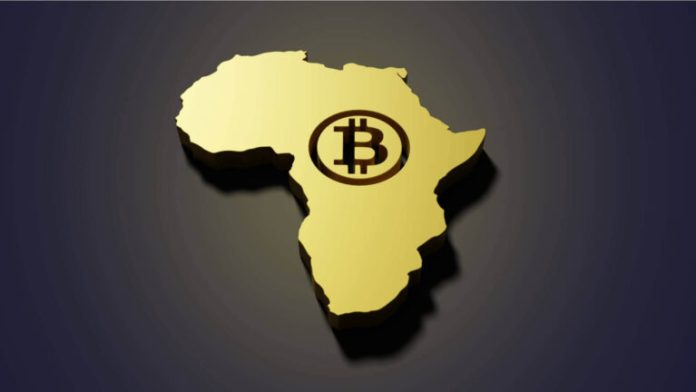The use of cryptocurrency is gaining momentum in Africa due to its decentralized and secure nature for transactions. Despite facing regulatory hurdles and inadequate infrastructure, several African nations are adopting cryptocurrency. This piece will delve into the top 10 African countries with the highest number of cryptocurrency users.
1. Nigeria: Nigeria is leading the way in cryptocurrency adoption in Africa, with a large number of users and a thriving crypto community. The country has a high level of internet penetration and a tech-savvy population, making it an ideal environment for cryptocurrency usage.
2. South Africa: South Africa is another African nation that has embraced cryptocurrency. The country has a well-developed financial system and a growing number of crypto exchanges. The government has also shown a relatively positive attitude towards cryptocurrencies, which has further fueled adoption.
3. Kenya: Kenya has emerged as a hub for cryptocurrency innovation in Africa. The country has a vibrant fintech ecosystem and a high mobile penetration rate, making it conducive for cryptocurrency usage. Additionally, the government has taken steps to regulate and support the crypto industry, further driving adoption.
4. Ghana: Ghana has seen a significant increase in cryptocurrency usage in recent years. The country has a young and tech-savvy population, and the government has shown interest in exploring blockchain technology. This has led to the growth of crypto startups and the establishment of crypto-friendly regulations.
5. Uganda: Uganda has witnessed a surge in cryptocurrency adoption, particularly among the youth. The country has a high mobile penetration rate, and cryptocurrencies offer an alternative means of financial inclusion for the unbanked population. The government has also taken steps to regulate the crypto industry, providing a favorable environment for users.
6. Tanzania: Tanzania has seen a growing interest in cryptocurrencies, with an increasing number of users and businesses accepting digital currencies. The country has a relatively stable economy and a high mobile penetration rate, making it an attractive market for cryptocurrency adoption.
7. Zimbabwe: Zimbabwe has faced economic challenges in recent years, leading to hyperinflation and a lack of trust in the national currency. As a result, many Zimbabweans have turned to cryptocurrencies as a store of value and a means of conducting transactions. Cryptocurrencies offer a more stable and secure alternative in the face of economic uncertainty.
8. Egypt: Egypt has seen a rise in cryptocurrency adoption, driven by a young and tech-savvy population. The country has a large number of internet users and a growing interest in digital assets. The government has also taken steps to regulate the crypto industry, providing a framework for users and businesses.
9. Morocco: Morocco has witnessed a growing interest in cryptocurrencies, with an increasing number of users and businesses accepting digital currencies. The country has a relatively stable economy and a high level of internet penetration, making it an attractive market for cryptocurrency adoption.
10. Rwanda: Rwanda has
Countries with the largest cryptocurrency users in Africa
| Rank | Countries | Cryptocurrency users |
|---|---|---|
| 1. | Nigeria | 22,223,791 |
| 2. | South Africa | 7,712,116 |
| 3. | Kenya | 6,101,599 |
| 4. | Egypt | 2,372,936 |
| 5. | Tanzania | 2,323,874 |
| 6. | Democratic Republic of Congo | 2,038,909 |
| 7. | Ethiopia | 1,827,706 |
| 8. | Ghana | 1,391,703 |
| 9. | Morocco | 1,151,520 |
| 10. | Uganda | 984,731 |
1. Nigeria
Cryptocurrency users: 22,223,791
Nigeria is the largest cryptocurrency market in Africa, according to a report by Chainalysis, a blockchain analytics company. The report revealed that Nigerians traded $400 million worth of cryptocurrency in 2020, second only to the United States. The high adoption rate of cryptocurrency in Nigeria is attributed to a number of factors, including a high level of financial exclusion, a weak and unstable currency, and a large youth population that is tech-savvy and open to new innovations.
In Nigeria, cryptocurrency is seen as a means of overcoming the challenges posed by traditional banking systems. It offers a decentralized and secure means of conducting transactions, making it attractive to Nigerians who are seeking financial inclusion.
The Nigerian government has been slow to regulate cryptocurrency, leading to concerns about its use for illegal activities such as money laundering and terrorism financing. However, the government recently issued a directive to financial institutions prohibiting them from dealing in cryptocurrency.
2. South Africa
Cryptocurrency users: 7,712,116
South Africa is the second-largest cryptocurrency market in Africa, with a growing number of users. According to a report by Luno, a cryptocurrency exchange, the number of people in South Africa who own cryptocurrency increased by 44% between 2019 and 2020. The report also revealed that 13% of South Africans own cryptocurrency, which is higher than the global average of 7%.
The high adoption rate of cryptocurrency in South Africa is attributed to a number of factors, including a high level of financial inclusion, a weak and unstable currency, and a tech-savvy population.
South Africans have been quick to embrace new technologies, and cryptocurrency is seen as a way of overcoming the challenges posed by traditional banking systems. The South African government has been slow to regulate cryptocurrency, but there are indications that it may soon introduce regulations to prevent its use for illegal activities.
3. Kenya
Cryptocurrency users: 6,101,599
Kenya is one of the leading cryptocurrency markets in Africa, with a growing number of users. According to a report by the World Bank, only 43% of Kenyans have access to formal financial services, making the country an ideal market for cryptocurrency.
The report also revealed that 1 in 10 Kenyans own cryptocurrency. The high adoption rate of cryptocurrency in Kenya is attributed to a number of factors, including a high level of financial exclusion, a weak and unstable currency, and a tech-savvy population.
Cryptocurrency is seen as a means of overcoming the challenges posed by traditional banking systems and providing financial inclusion to the unbanked population. The Kenyan government has been slow to regulate cryptocurrency, but there are indications that it may soon introduce regulations to prevent its use for illegal activities.
4. Egypt
Cryptocurrency users: 2,372,936
Egypt is one of the emerging cryptocurrency markets in Africa, with a growing number of users. According to a report by Chainalysis, Egyptians traded $105 million worth of cryptocurrency in 2020. The report also revealed that Egypt is one of the countries with the highest growth rate in cryptocurrency adoption.
The high adoption rate of cryptocurrency in Egypt is attributed to a number of factors, including a high level of financial exclusion, a weak and unstable currency, and a tech-savvy population. Cryptocurrency is seen as a means of overcoming the challenges posed by traditional banking systems and providing financial inclusion to the unbanked population.
The Egyptian government has been slow to regulate cryptocurrency, but there are indications that it may soon introduce regulations to prevent its use for illegal activities.
5. Tanzania
Cryptocurrency users: 2,323,874
Tanzania is also one of the emerging cryptocurrency markets in Africa, with a growing number of users. According to a report by Chainalysis, Tanzanians traded $6.5 million worth of cryptocurrency in 2020. The report also revealed that Tanzania is one of the countries with the highest growth rate in cryptocurrency adoption.
The high adoption rate of cryptocurrency in Tanzania is attributed to a number of factors, including a high level of financial exclusion, a weak and unstable currency, and a tech-savvy population. Cryptocurrency is seen as a means of overcoming the challenges posed by traditional banking systems and providing financial inclusion to the unbanked population.
The Tanzanian government has been slow to regulate cryptocurrency, but there are indications that it may soon introduce regulations to prevent its use for illegal activities.
6. Democratic Republic of Congo
Cryptocurrency users: 2,038,909
The Democratic Republic of Congo is an emerging cryptocurrency market in Africa, with a growing number of users. According to a report by Chainalysis, Congolese traded $500,000 worth of cryptocurrency in 2020. The high adoption rate of cryptocurrency in the DRC is attributed to a number of factors, including a high level of financial exclusion, a weak and unstable currency, and a tech-savvy population.
Cryptocurrency is seen as a means of overcoming the challenges posed by traditional banking systems and providing financial inclusion to the unbanked population. The Congolese government has been slow to regulate cryptocurrency, but there are indications that it may soon introduce regulations to prevent its use for illegal activities.
7. Ethiopia
Cryptocurrency users: 1,827,706
Ethiopia is an emerging cryptocurrency market in Africa, with a growing number of users. According to a report by Chainalysis, Ethiopians traded $200,000 worth of cryptocurrency in 2020. The high adoption rate of cryptocurrency in Ethiopia is attributed to a number of factors, including a high level of financial exclusion, a weak and unstable currency, and a tech-savvy population.
Cryptocurrency is seen as a means of overcoming the challenges posed by traditional banking systems and providing financial inclusion to the unbanked population. The Ethiopian government has been slow to regulate cryptocurrency, but there are indications that it may soon introduce regulations to prevent its use for illegal activities.
8. Ghana
Cryptocurrency users: 1,391,703
Ghana is an emerging cryptocurrency market in Africa, with a growing number of users. According to a report by Chainalysis, Ghanaians traded $1 million worth of cryptocurrency in 2020. The high adoption rate of cryptocurrency in Ghana is attributed to a number of factors, including a high level of financial exclusion, a weak and unstable currency, and a tech-savvy population.
Cryptocurrency is seen as a means of overcoming the challenges posed by traditional banking systems and providing financial inclusion to the unbanked population. The Ghanaian government has been slow to regulate cryptocurrency, but there are indications that it may soon introduce regulations to prevent its use for illegal activities.
9. Morocco
Cryptocurrency users: 1,151,520
Morocco is an emerging cryptocurrency market in Africa, with a growing number of users. According to a report by Chainalysis, Moroccans traded $500,000 worth of cryptocurrency in 2020. The high adoption rate of cryptocurrency in Morocco is attributed to a number of factors, including a high level of financial exclusion, a weak and unstable currency, and a tech-savvy population.
Cryptocurrency is seen as a means of overcoming the challenges posed by traditional banking systems and providing financial inclusion to the unbanked population. The Moroccan government has been slow to regulate cryptocurrency, but there are indications that it may soon introduce regulations to prevent its use for illegal activities.
10. Uganda
Cryptocurrency user: 984,731
Uganda is an emerging cryptocurrency market in Africa, with a growing number of users. According to a report by Chainalysis, Ugandans traded $1.5 million worth of cryptocurrency in 2020. The high adoption rate of cryptocurrency in Uganda is attributed to a number of factors, including a high level of financial exclusion, a weak and unstable currency, and a tech-savvy population.
Cryptocurrency is seen as a means of overcoming the challenges posed by traditional banking systems and providing financial inclusion to the unbanked population. The Ugandan government has been slow to regulate cryptocurrency, but there are indications that it may soon introduce regulations to prevent its use for illegal activities.














